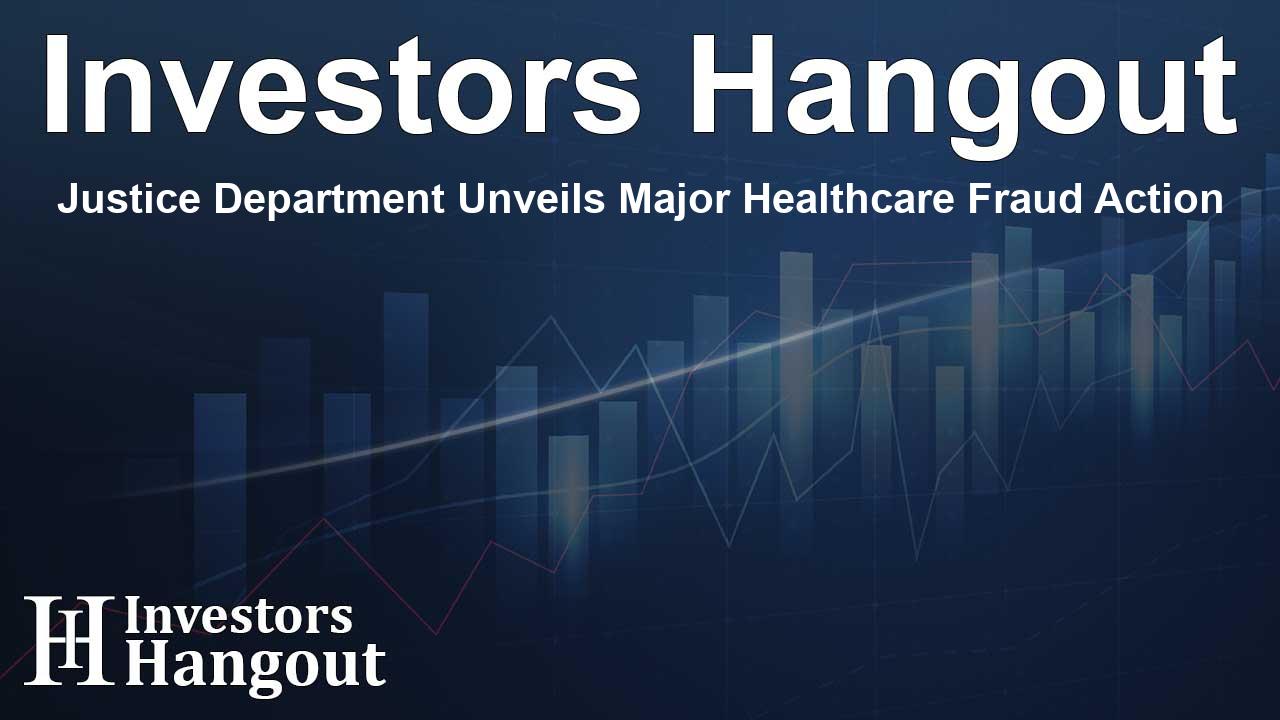Justice Department Unveils Major Healthcare Fraud Action

Significant Crackdown on Healthcare Fraud
The Department of Justice has taken a historic step in combating healthcare fraud, charging over 320 individuals and unveiling nearly $15 billion in fraudulent claims. This operation, aptly named “Operation Gold Rush,” stands as a watershed moment in the ongoing effort to safeguard the integrity of healthcare systems.
The Details of Operation Gold Rush
Announced by the Justice Department, the charges reveal a staggering $14.6 billion in false claims submitted primarily from abroad. The operation not only resulted in numerous arrests but also saw the seizure of assets exceeding $245 million, including cash, luxury vehicles, and cryptocurrency, showcasing the scale and sophistication of the fraudulent activities.
Criminal Networks Exposed
Among the arrested, key players were found operating from Russia, Eastern Europe, and Pakistan, highlighting a concerning trend of international crime impacting American healthcare. The head of the Justice Department's criminal division, Matthew Galeotti, emphasized the personal impact of these crimes, stating, “These criminals didn't just steal someone else's money. They stole from you.”
Impact on Healthcare Professionals
This extensive investigation resulted in charges against approximately 100 licensed healthcare professionals, including 25 physicians. The government documented actual losses of around $2.9 billion, a staggering figure that underscores the depth of the crisis. One of the most alarming cases involves a $10 billion scheme related to urinary catheters, demonstrating how organized crime is increasingly infiltrating healthcare sectors.
Personal Information Misuse
The scale of victimization is equally concerning. Reports indicate that over one million Americans had their personal information hijacked for these fraudulent schemes. This exploitation not only causes financial damage but also contributes to a pervasive atmosphere of distrust in the healthcare system among the public.
Broader Implications of the Crackdown
The recent crackdown on healthcare fraud marks a critical juncture in the Justice Department's efforts against healthcare-related crimes. Such actions are part of a broader strategy to enhance fraud prevention, especially relevant following recent investigations into the billing practices of major insurers.
Connections to Medicare Investigations
This crackdown comes closely on the heels of a separate investigation into UnitedHealth Group Inc.'s Medicare billing procedures. Under scrutiny for questionable practices surrounding federal payments, the company is now at the center of an expansive examination aiming to uphold integrity within Medicare Advantage plans.
Legislative Actions and Future Directions
Moreover, this operation aligns with legislative initiatives aimed at reducing Medicare fraud, such as Rep. Ro Khanna’s “Progressive Deficit Reduction Plan.” Supported by high-profile figures like billionaire Mark Cuban, this proposal seeks to alleviate the national deficit by significantly curtailing fraudulent activities within Medicare, pointing toward ambitious reforms in the coming decade.
Preventive Measures and Solutions
To address such challenges effectively, it is essential for both public and private sectors to enhance collaboration in fraud detection and prevention. Initiatives that leverage technology may provide necessary tools for identifying and halting fraudulent transactions before they plunge deep into the healthcare system.
Final Thoughts
The ramifications of this significant operation go far beyond mere statistics. It represents a pivotal moment of awareness and action against healthcare fraud, offering hope for improved medical practices and accountability in the industry. As the Justice Department pledges to continue this fight, the collective effort of stakeholders at every level becomes foundational in restoring faith in our healthcare systems.
Frequently Asked Questions
What triggered the recent healthcare fraud crackdown?
A historic operation named “Operation Gold Rush” identified and charged over 320 individuals involved in fraudulent schemes totaling nearly $15 billion.
How did the fraud schemes operate?
The schemes involved the misuse of stolen identities and fraudulent claims were submitted by entities based overseas, blending sophisticated technologies with criminal tactics.
What impact does this have on healthcare professionals?
Approximately 100 licensed healthcare professionals, including doctors, were charged, which challenges the ethics and practices within the medical community.
What are the next steps following this crackdown?
The Justice Department will continue to pursue fraudulent activities aggressively while examining billing practices across major insurers.
How can fraud be better prevented in healthcare?
Emphasizing collaborative efforts in fraud detection through technology, transparent practices, and legislative reforms can enhance the integrity of healthcare systems.
About The Author
Contact Logan Wright privately here. Or send an email with ATTN: Logan Wright as the subject to contact@investorshangout.com.
About Investors Hangout
Investors Hangout is a leading online stock forum for financial discussion and learning, offering a wide range of free tools and resources. It draws in traders of all levels, who exchange market knowledge, investigate trading tactics, and keep an eye on industry developments in real time. Featuring financial articles, stock message boards, quotes, charts, company profiles, and live news updates. Through cooperative learning and a wealth of informational resources, it helps users from novices creating their first portfolios to experts honing their techniques. Join Investors Hangout today: https://investorshangout.com/
The content of this article is based on factual, publicly available information and does not represent legal, financial, or investment advice. Investors Hangout does not offer financial advice, and the author is not a licensed financial advisor. Consult a qualified advisor before making any financial or investment decisions based on this article. This article should not be considered advice to purchase, sell, or hold any securities or other investments. If any of the material provided here is inaccurate, please contact us for corrections.
